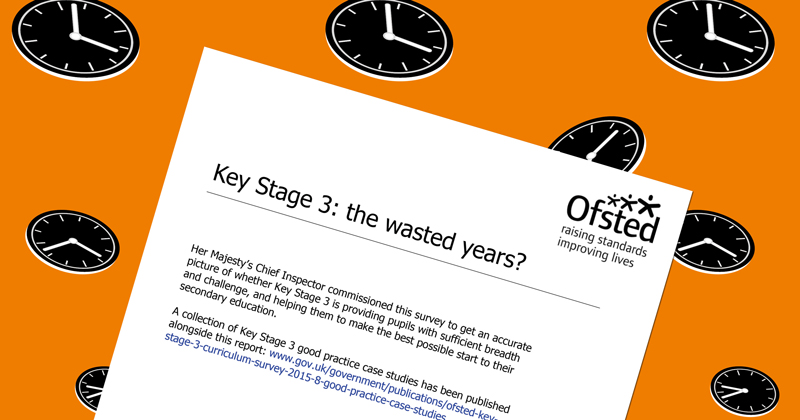It’s 10 years since Ofsted published its landmark report, Key Stage 3: The Wasted Years? The findings were stark.
While there were examples of strong leadership and thoughtful provision, these were the exception.
Across much of the system, key stage 3 was found to be dull, under-resourced and overshadowed by the exam years.
A decade later, has much changed?
Progress made, but patchy
There has undoubtedly been improvement. The curriculum conversation is stronger, and more schools are giving this phase greater thought and attention. But provision is still inconsistent. Too often, KS3 is treated as a rehearsal for GCSEs rather than a stage with its own intellectual purpose.
In its 2023 Rich encounters with the past: history subject report, Ofsted noted that “in the best schools, pupils developed rich and connected knowledge of the past. In others, pupils’ knowledge was disconnected or superficial”.
Geography, too, has seen advances, but inspectors found that many schools still overlooked the key concepts that give the subject coherence.
The picture, then, is one of partial progress. KS3 remains ripe for renewal.
Listening to pupils
One of the clearest signals comes from pupils themselves. Many report being taught material they had already covered in primary school. Of course, revisiting prior learning can be valuable for consolidation; but re-teaching it as though it were new is not.
Secondary colleagues can easily check for overlap by revisiting the ‘importance statements’ and ‘programmes of study’ in the primary national curriculum. A little coordination can prevent a lot of repetition.
Raising expectations
Pupils also tell us that the work can feel too easy. The gap between what pupils achieve at the end of KS2 and what they encounter at KS3 remains wide. Secondary teachers are often surprised by the sophistication of year 6 work. When they see it, the reflection that follows is natural: if they can do this in primary, what more could we offer them in secondary?
Addressing this isn’t about adding workload. It’s about asking different questions about content, challenge and coherence.
Evidence of what’s possible
Research from the University of Sussex highlights the impact of giving students access to more challenging material, including high-quality texts.
Schools adopting this approach have reported two striking outcomes: first, that students, including those with lower starting points, can cope; and second, that engagement rises.
Some schools are now extending this model beyond English, using high-quality source material in a range of subjects.
Pupils experience the “big ideas” and disciplinary thinking that underpin later study.
Those who continue the subject to GCSE benefit from firm foundations; those who do not still leave KS3 with meaningful and memorable encounters with the discipline.
Professional collaboration
Schools that are serious about strengthening KS3 are finding practical ways to sustain momentum.
Many are setting up termly subject meetings, either in person or online, to share examples of pupils’ work, moderate standards and exchange resources. These sessions are proving a simple but powerful way to build shared expertise and raise expectations.
A call to re-imagine KS3
Despite a sharper focus on curriculum quality under the current inspection framework, the transformation at KS3 has not yet materialised.
In too many schools, the phase still contracts into two years as GCSE content encroaches into year 9. This denies pupils their entitlement to a full three-year broad and balanced curriculum.
If we are serious about social justice and intellectual ambition, this must change. KS3 should be the intellectual powerhouse of the secondary school. The phase where pupils encounter demanding ideas, develop disciplinary habits of mind, and build the secure knowledge that makes later learning possible.
The foundations laid here are not just for GCSEs, but for life.








Your thoughts